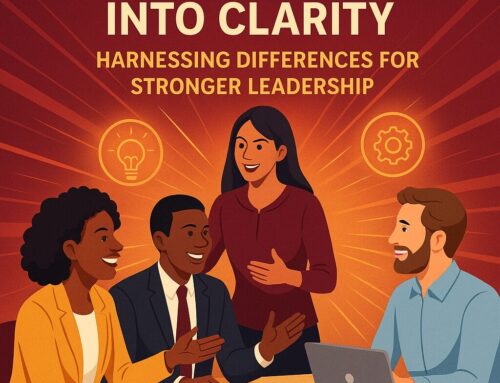We work our bodies – we push them to achieve more, to be stronger, faster. Sometimes we are able to do more than we can imagine, especially when we surround ourselves with a great team of trainers, nutritionists, doctors and so on. Not so for our mind. When was the last time you intentionally gave your mind a good workout?
When we become static and stale in our thinking and habits, it can become harder to respond to change. When we have a failure we can get stuck in a negative mental narrative of not being good enough with the result that we start avoiding risks and challenges. We become fixed in our mindset.
A fixed mindset is the belief that one’s abilities, intelligence, and talents are fixed traits that cannot be changed or improved. People with a fixed mindset tend to avoid challenges, give up easily in the face of obstacles, and see mistakes as evidence of their limitations. They may also be less receptive to feedback and less likely to seek out opportunities for learning and growth.
Most of us have a mixture of both growth and fixed mindsets, and our mindset can vary depending on the situation or task at hand. However, developing a growth mindset can lead to greater success and satisfaction in both personal and professional contexts – and even more so in these times of rapid change. It’s one of the qualities that can elevate a manager to a leader.
People with a growth mindset see challenges and failures as opportunities to learn and grow, and they embrace the idea that mistakes are a natural part of the learning process. They tend to be more resilient, adaptable, and open to new ideas and feedback.
“The mind is just like a muscle – the more you exercise it, the stronger it gets and the more it can expand.”
― Idowu Koyenikan, Wealth for All: Living a Life of Success at the Edge of Your Ability
In a leadership role, a growth mindset is particularly valuable because it:
- Encourages innovation and creativity: Thinking outside of the box, experimentation and challenging the status quo are growth mindset characteristics
- Fosters resilience and adaptability: By reframing challenges as opportunities to learn and grow, rather than as roadblocks.
- Improves performance and productivity: It fosters a sense of purpose, motivation, and continuous improvement that can lead to greater productivity and better results.
A growth mindset is not just about you and your performance. Leaders who have a growth mindset are more likely to encourage their employees to develop their skills and knowledge. This can lead to a more engaged and motivated workforce, which can have a positive impact on the overall success of the business. It’s a win-win. We love those. I recall a time early in my career when I responded to challenges with a fixed mindset and not only did it limit my capabilities, I noticed that I started judging others with the same ‘fixed’ parameters. This was both unfair and unhelpful. We can achieve so much more when we grow together and that has stayed with me throughout my personal and professional life.
To develop a growth mindset, senior leaders can implement the following strategies:
- Encourage a culture of learning: Provide employees with opportunities to learn and grow, such as workshops, training programs, and mentorship programs. Encourage them to take on new challenges and provide them with the resources and support they need to succeed.
- Recognize and reward effort: Instead of solely focusing on outcomes, acknowledge the effort and progress that individuals make towards their goals. This helps to reinforce a growth mindset and encourages individuals to continue to strive for improvement.
- Embrace failure as a learning opportunity: Create a safe space for individuals to fail and learn from their mistakes. Encourage them to reflect on what went wrong and how they can do better in the future.
- Challenge fixed mindsets: Be aware of and challenge fixed mindsets in the workplace. Encourage individuals to see things from different perspectives and challenge their assumptions.
- Lead by example: Senior leaders should model a growth mindset themselves. They should demonstrate a willingness to learn, take risks, and embrace challenges. This will inspire others to do the same and create a culture of growth and continuous improvement.
The truth is, we don’t know what the future holds. We don’t know exactly the technical skills we will need to succeed. But, if we want to stay competitive and responsive in today’s rapidly changing business environment, a growth mindset will help us get there.
📷 by LUM3N






